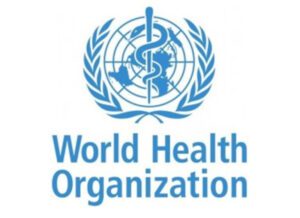


Health Ministry to impose heavy tax on sugar sweetened beverages
By Gbenga Olaseinde
The Coordinating Minister of Health and Social welfare, Dr Muhammad Ali Pate, has disclosed that Nigeria is one of the Countries faced with growing health crisis with Sugar Sweetened Beverages (SSB) related diseases such as obesity and diabetes adding that the associated healthcare costs are escalating at an alarming rate.
He said this at the “National Conference on Sugar Sweetened Beverages(SSB) tax and Healthcare Financing in Nigeria in Abuja on Tuesday. Theme: Health Tax as Recipe for improved Healthcare Financing.
According to him, “recent reviews and meta-analyses by the International Diabetes Foundation (IDF) show that as of 2021, over 3.6 million people are diabetic with 53% of these citizens undiagnosed; and this number is expected to rise to about 5 million by the year 2030. The cost of treating diabetes per person has surged from an average of N60,000 in 2011 to N800,000 in 2021, and it is projected to exceed N1,000,000 by 2030.
Muhammad emphasised that the goal of the SSB tax is to reduce the consumption of these unhealthy beverages, ultimately preventing obesity and its related diseases. In 2021, Nigeria joined over 100 countries that have introduced taxes on sugar-sweetened beverages. This tax, embedded in the Finance Act of 2021, levies a N10 tax on each litre of all non-alcoholic, sweetened, and carbonated drinks.
“As we look to the future, we must view the SSB tax as a cornerstone of our strategy to improve public health and healthcare financing. By discouraging the consumption of sugar-laden beverages, we aim to reduce the prevalence of obesity and diabetes, and in turn, alleviate the financial burden on our healthcare system”.
He said, “this tax serves as a deterrent and generates essential revenue that can be reinvested into healthcare initiatives, particularly preventive measures and the treatment of non-communicable diseases”.
The Minister said, our vision is a Nigeria where healthier choices are accessible and affordable for all citizens. We aspire to create an environment where nutritious alternatives are readily available, empowering individuals to make informed decisions about their diet and overall health.
To achieve this, we must strengthen our collaboration with stakeholders, including the food and beverage industry, healthcare providers, and civil society organizations, to promote healthier lifestyles and ensure the sustainability of our health systems.
Muhammad noted that “the 2023 National Policy on Food Safety and Quality and its Implementation Plan also prioritises the consumption of healthy foods. It specifically expects the Government at every level to develop strategies for reducing the consumption of Sugar, Alcohol, and Sodium as well as the elimination of Trans-Fatty Acids (TFAs) in Nigerian diets”.
In his welcome remarks, the Executive Director of Corporate Accountability and Public Participation Africa(CAPPA), Akinbode Oluwafemi also retirated that the Country is facing a crisis! Public health in Nigeria is under siege as non-communicable diseases (NCDs) surge at an alarming and unprecedented rate.
He said, “Every where you turn, there is a Nigerian battling obesity, diabetes, hypertension, stroke, or heart disease”.
In fact, any discerning person in this room will readily acknowledge the increasing incidents of people slumping and dying across the country. These are conditions that were once described as “Oyibo sickness” and uncommon
According to him, “Non Communcable Diseases(NCDs) account for 29 percent of all deaths in Nigeria, with cardiovascular diseases (CVDs) alone responsible for 11 percent of these fatalities. Health experts report that in the past 20 years, cases of cardiovascular disease have exploded by 150 percent in Nigeria”.
“This surge is directly tied to unhealthy lifestyles including the over consumption of sugar-sweetened beverages and ultra-processed foods.
He said, “This is not because we asked for it, but because the industry and big food corporations have chosen to prioritise profit over public health, exploiting loopholes in our food policies and regulations to push their products, evade accountability and determine our health outcomes”.
Akinbode noted that as a nation, we must find sustainable ways to control these avoidable diseases, alleviate the mounting expenses they impose, and bolster our healthcare infrastructure and social systems to withstand the burden of these diseases he said”.



